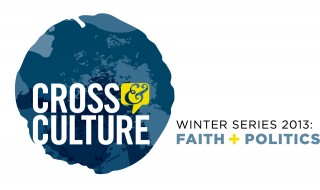
On Politics: How We Can Persevere
This article originally appeared in World magazine on October 28, 2006, entitled “Go Out and Vote: What Reformation Day can teach We the People about Election Day.” It is reproduced here with the permission of the author, Marvin Olasky, in anticipation of our upcoming Cross & Culture event on March 1. The topic? “Rafting the Political Rapids.”
“Freedom!” That’s what William Wallace cries out at the conclusion of Braveheart. That’s what many of us feel like screaming as this sorry election campaign heads toward a final fizzle. Freedom from most Democratic leaders and their pursuit of a tough-on-innocent-unborn-children and soft-on-guilty-terrorists policy. Freedom from Republican leaders who have those priorities in order but are soft on members of their club who act piggishly in regard to pork-barrel expenditures, personal lusts, or both.
The problem, though, comes when other screamers play on our consternation and demand that Christians separate from non-Christians either by forming a purportedly pure “Christian party” or by just staying home and not voting. It’s good that Reformation Day, Oct. 31, comes only a few rotations of the earth before Election Day, because an understanding of two crucial changes in Christian history can help us avoid contemporary electoral errors.
Nearly two millennia ago, early Christians abandoned ancient Israel’s emphasis on maintaining national purity by requiring separation (through circumcision and food requirements) from the cultures around them. That change allowed the early Christian church to drop the defensive posture that had characterized Israel and to go on offense. Without a Holy Land to preserve but with a gospel to proclaim, evangelism became a primary task. New people rapidly joined the church at the risk of dilution, but leaders took risks that Jewish priests directed to police purity had never been willing to accept.
Half a millennium ago many Christians realized that they did not have to obey an ecclesiastical king: They could free themselves from a top-down structure of governance and the abuses that the arrogance of power produced. The Protestant Reformation led to a vigorous debate-first among Protestants, and eventually among Catholics-about the kinds of laws we should have. The Reformation led to emphasis on the liberty of individual believers. Without that faith, the American Revolution would have been stillborn.
Theologians read by the American founders sometimes took unexpected positions. John Calvin, often depicted today as doctrinaire and unbending, noted in book four of his Institutes of the Christian Religion (1536-64) the existence of “some who deny that a commonwealth is duly framed which neglects the political system of Moses, and is ruled by the common laws of nations.” Calvin then wrote that such a view is “perilous and seditious . . . false and foolish.” He wrote that legislators should pay attention to “times, place, and nation. . . . For the Lord through the hand of Moses did not give that law to be proclaimed among all nations and to be in force everywhere.”
Calvin opposed the idea that ancient Israel’s legal code should be transplanted into different societies: “The statement of some, that the law of God given through Moses is dishonored when it is abrogated and new laws preferred to it, is utterly vain.” A century later, the Westminster Confession of Faith noted that the laws of ancient Israel “expired together with the State of that people; not obliging any other now, further than the general equity thereof may require.” That judicial code was unique and temporary. We can learn from it, but it should not bind us.
This understanding gives us the opportunity to go on offense without being unnecessarily offensive. For example, Christians don’t have to be apologetic, defensive, or tongue-tied when a reporter asks us about biblical references to stoning homosexuals or wiping out Canaanite men, women, and children. Those were commands given under specific historical circumstances for a land specifically designated as the Holy Land. Today, Christians should work with non-Christians to promote national security and protect innocent life, but the experience of ancient Israel taught that until Christ’s return we cannot have a Holy Land, because sin comes from within.
America is a nation heavily influenced by Christianity, but it always was a mixed multitude and will continue to be so. As Francis Schaeffer advised, we need to form “co-belligerent” alliances with non-Christians: That’s hard and often frustrating, but political life with its sad providences is one of the realms created by God that teach us perseverance. No temporary frustrations should lead us to sneer at these opportunities for spiritual growth amid political hardship. On Nov. 7, go out and vote.